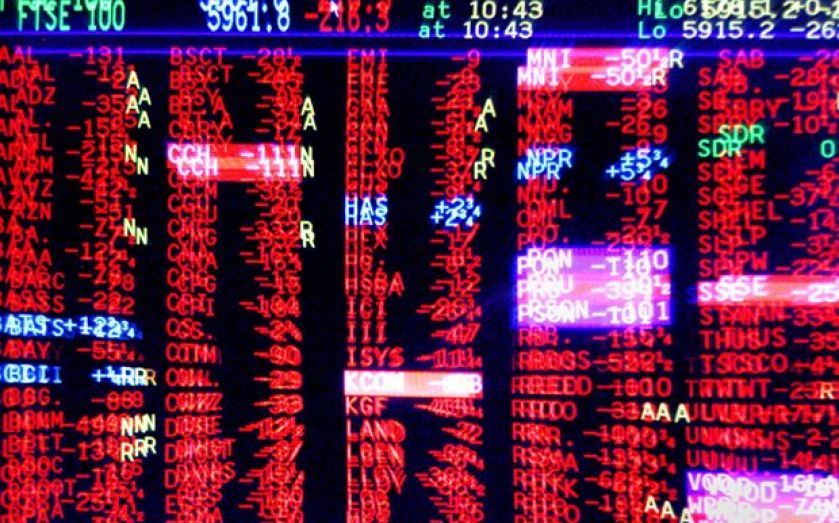Turmoil stalks global markets

THE TURMOIL in global markets showed no sign of slowing yesterday, as fears stalking emerging markets spread further across the world and central banks scrambled to stem steep drops in their currencies.
The FTSE 100 suffered its fifth consecutive day of losses, closing 113 points lower after BG Group warned that political turmoil in Egypt would hit output, sending its shares down nearly 14 per cent. The slump in London followed broad losses across Asian markets, where Japan’s Nikkei and Hong Kong’s Hang Seng both fell more than two per cent, and mirrored activity across Europe. France’s Cac closed 0.41 per cent lower, while Germany’s Dax lost 0.46 per cent.
As markets opened yesterday morning the Turkish lira plummeted, falling to a record low against the dollar of below $0.42 and forcing the country’s central bank to call an emergency meeting for today – news of which went some way to stem losses. The lira has lost 16 per cent against the dollar and 17 per cent since mid-December, when a political scandal threatened to engulf Prime Minister Tayyip Erdogan’s government.
Elsewhere, investors across the world deserted risky assets and fled into safe havens.

Yields on 10-year bonds in Greece – a major Turkish trading partner – rose by 1.24 per cent as wary investors steered clear, while the Ukrainian hryvnia also fell by about 2.5 per cent as violent protests against President Viktor Yanukovych continued.
The country’s state broadcaster announced that the National Bank of Ukraine had intervened in the exchange market, selling dollars in an attempt to control the currency’s plunge.
The chaos follows the rout of the Argentinian peso, which recorded its worst day since 2002 last week, prompting the government to quickly begin rolling back the country’s strict capital controls.
A Bloomberg index of the 20 most-traded exchange rates has seen its biggest annual decline in more than five years over the past 12 months.
However, Holger Schmieding of Berenberg Bank maintained that the volatility was likely to be limited to particularly troubled economies.
“Countries with high current account deficits, political trouble and/or a growth model based largely on rising commodity prices are vulnerable,” Schmieding said.